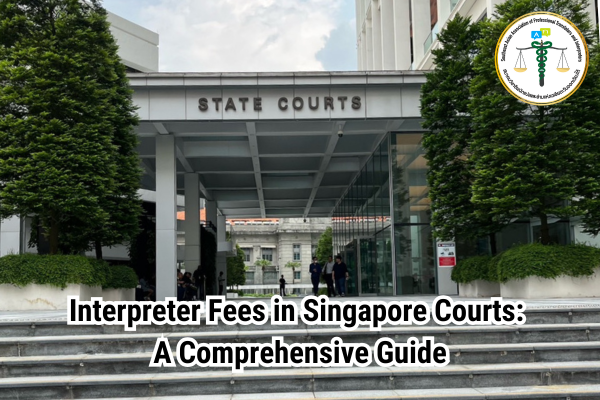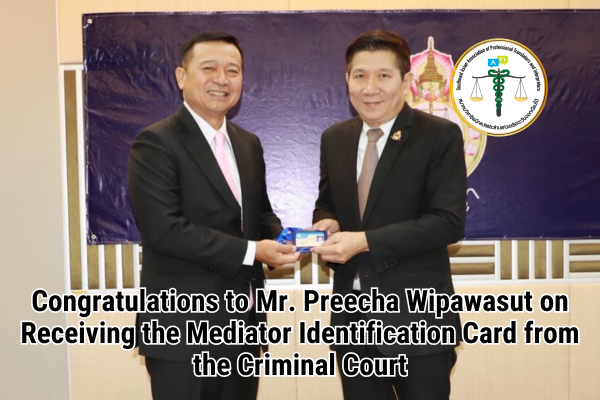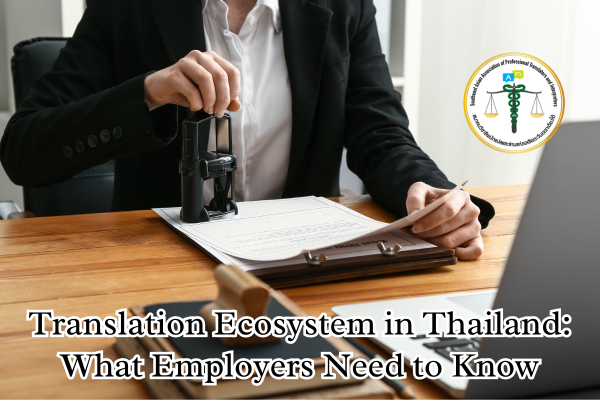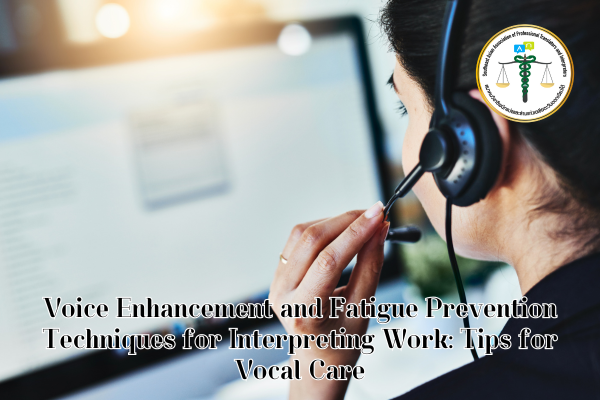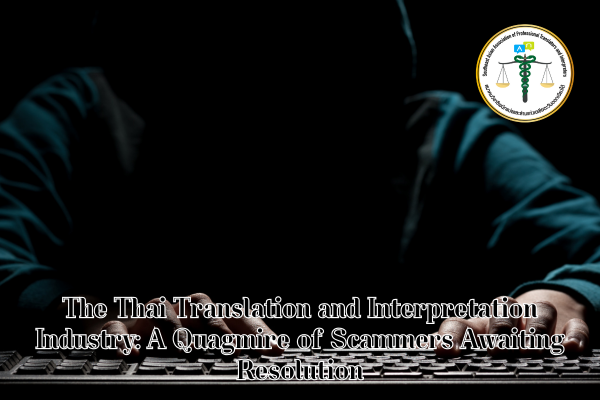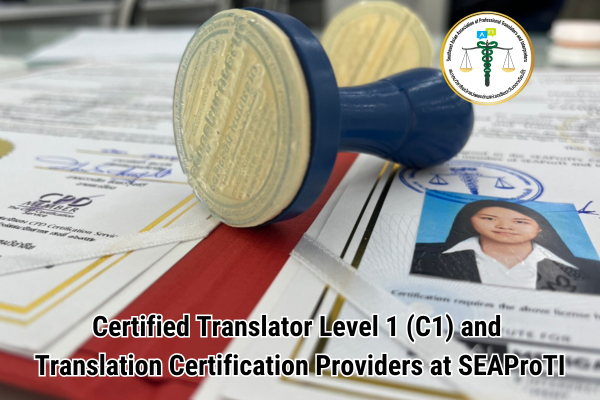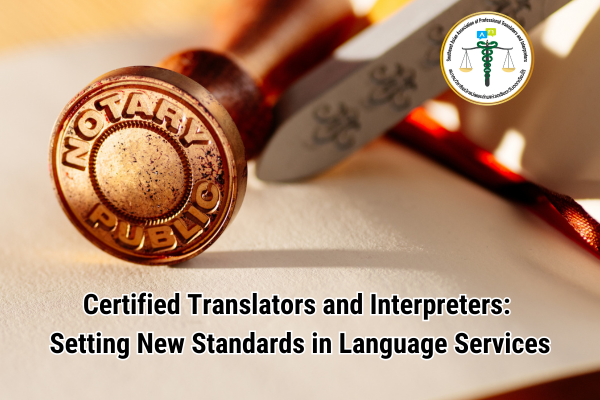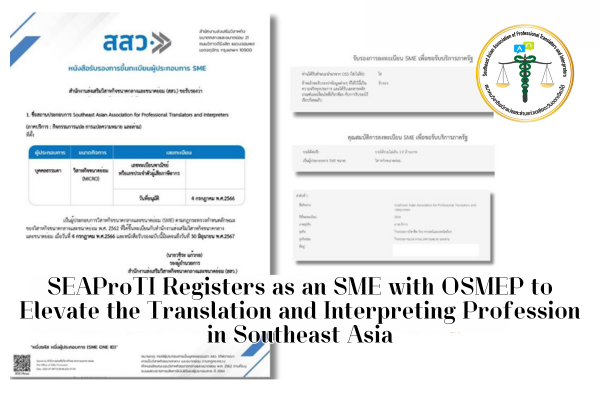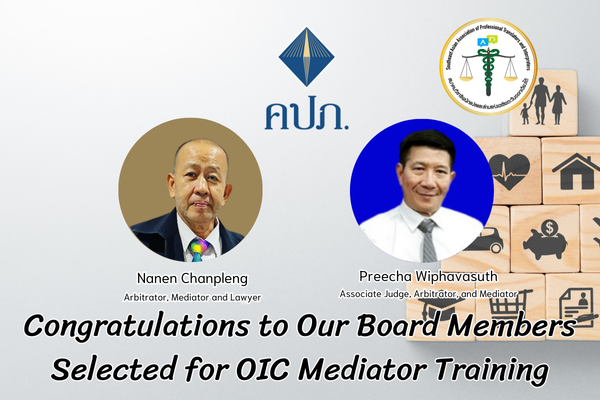Interpreter Fees in Singapore Courts: A Comprehensive Guide
20 January 2025, Bangkok – The role of interpreters in Singapore’s judicial system is critical in ensuring that all parties have access to justice, regardless of language barriers. As a multicultural and multilingual society, Singapore’s courts have a long-standing commitment to providing interpretation services for individuals involved in legal proceedings. However, with the introduction of interpreter fees in 2017 for civil proceedings, it is important to understand the structure, process, and implications of these charges. This article explores interpreter fees in Singapore courts, the procedures for engaging interpreters, and the avenues for financial assistance, offering a comprehensive guide for litigants and legal professionals alike.
Understanding the Interpreter Fee Structure
Effective from 1 August 2017, the Supreme Court and the Family Division of the High Court in Singapore implemented a standard interpreter fee of SGD 300 per day or part thereof. This fee applies specifically to interpretation services provided during open court hearings for civil proceedings. It excludes hearings under specific acts outlined in item 60 of Part 1 of the Fifth Schedule to the Family Justice Rules 2014.
The introduction of these fees reflects the courts’ efforts to optimize the use of interpreter resources while ensuring fairness in accessing these services. It allows for the management of the high demand for interpreters and provides an alternative for parties to engage private interpreters, thereby alleviating the strain on court-appointed interpreters.
Engaging Interpreter Services
To use interpreter services in Singapore courts, litigants and legal representatives must follow a well-defined process. Requests for interpreters must be submitted in advance, ensuring the courts can allocate resources effectively. Applications for interpreter services can be made through the e-Litigation system or by completing an online form available on the Supreme Court’s website. It is mandatory to submit requests at least seven working days before the required service date to ensure availability.
For those who prefer not to rely on court-appointed interpreters, engaging interpreters from private agencies is a viable alternative. Singapore has several professional interpreter agencies offering specialized legal interpretation services in various languages. These interpreters are trained to understand legal terminology and courtroom procedures, ensuring accurate and effective communication during proceedings.
Financial Assistance for Litigants-in-Person
While the introduction of interpreter fees aims to regulate resources, it also raises concerns for individuals who may face financial difficulties. To address this, the courts have provisions for financial assistance. Litigants-in-person (LIPs) who are unable to afford the SGD 300 fee can apply for a waiver or deferment of payment. Applications for such assistance must be submitted to the Registrar of the Supreme Court or the Registrar of the Family Justice Courts and are reviewed on a case-by-case basis.
This mechanism ensures that access to justice remains equitable, particularly for vulnerable individuals who may otherwise be disadvantaged by the additional cost of interpretation services. Applicants are advised to provide supporting documentation to substantiate their financial situation when requesting a waiver.
The Role of Private Interpreter Agencies
In addition to court-appointed interpreters, private agencies play a significant role in providing interpretation services for court proceedings in Singapore. These agencies offer a range of languages and expertise, catering to the diverse needs of Singapore’s legal community. Engaging private interpreters may be particularly beneficial in complex cases where a specific dialect or highly specialized legal knowledge is required.
Private interpreter agencies typically charge fees based on factors such as the complexity of the case, the language involved, and the duration of the assignment. While their rates may vary, their flexibility and expertise make them a valuable resource for legal professionals and litigants seeking tailored interpretation solutions.
Interpreter Fees Across Different Courts
It is important to note that the SGD 300 interpreter fee applies only to civil proceedings in the Supreme Court and the Family Division of the High Court. Interpretation services in other courts, such as the State Courts and Family Justice Courts, may have different fee structures or guidelines, depending on the nature of the proceedings and the language requirements.
Criminal proceedings and hearings involving specific family law statutes often continue to provide interpretation services free of charge, as part of the courts’ commitment to upholding fair trials and due process. However, litigants are encouraged to verify the specific requirements and fees applicable to their cases, as these can vary depending on the type of proceeding and jurisdiction.
The Importance of Legal Interpretation Services
Legal interpretation is a specialized field that requires not only linguistic proficiency but also a deep understanding of legal terminology and procedures. Interpreters in Singapore’s courts play a vital role in bridging communication gaps, ensuring that all parties can participate fully in the judicial process. From facilitating witness testimonies to ensuring that court orders are understood, interpreters are integral to the functioning of a fair and inclusive legal system.
The introduction of interpreter fees has underscored the value of these services while encouraging greater accountability and efficient use of resources. It has also opened opportunities for private sector involvement, fostering a competitive landscape that benefits users of interpretation services.
Challenges and Future Considerations
While the implementation of interpreter fees has streamlined the management of resources in Singapore’s courts, it has also raised important questions about accessibility and equity. For some litigants, particularly those from lower-income backgrounds or non-native speakers unfamiliar with legal processes, the fees may pose an additional hurdle.
To address these challenges, ongoing efforts to provide financial assistance and streamline application processes are essential. Public education about the availability of waivers and the process for engaging interpreters can also help ensure that all individuals have equal access to the support they need.
Looking forward, the integration of technology in legal interpretation presents exciting possibilities. Remote interpretation services, AI-powered language tools, and other innovations could enhance efficiency and reduce costs, making interpretation services more accessible to a broader audience.
Conclusion
Interpreter fees in Singapore courts are a necessary step in managing the increasing demand for interpretation services while maintaining the high standards of the judiciary. By balancing the need for resource optimization with provisions for financial assistance, the courts aim to ensure that access to justice remains inclusive and equitable.
For litigants and legal professionals navigating this system, understanding the procedures for engaging interpreters, the applicable fees, and the available support mechanisms is crucial. Whether opting for court-appointed interpreters or private services, the key is to plan ahead and ensure that language barriers do not hinder the pursuit of justice. With ongoing advancements and a commitment to fairness, Singapore’s legal system continues to uphold its dedication to effective communication and equal access for all.
SEAProTI’s certified translators, translation certification providers, and certified interpreters:
The Southeast Asian Association of Professional Translators and Interpreters (SEAProTI) has officially announced the criteria and qualifications for individuals to register as “Certified Translators,” “Translation Certification Providers,” and “Certified Interpreters” under the association’s regulations. These guidelines are detailed in Sections 9 and 10 of the Royal Thai Government Gazette, issued by the Secretariat of the Cabinet under the Office of the Prime Minister of the Kingdom of Thailand, dated July 25, 2024, Volume 141, Part 66 Ng, Page 100.
To read the full publication, visit: the Royal Thai Government Gazette
ค่าตอบแทนล่ามในศาลสิงคโปร์: คู่มือฉบับสมบูรณ์
20 มกราคม 2568, กรุงเทพมหานคร – บทบาทของล่ามในระบบกฎหมายของสิงคโปร์มีความสำคัญอย่างยิ่งในการทำให้ทุกฝ่ายสามารถเข้าถึงความยุติธรรมได้โดยปราศจากอุปสรรคทางภาษา ในฐานะที่สิงคโปร์เป็นสังคมที่มีความหลากหลายทางวัฒนธรรมและภาษา ศาลในประเทศจึงมีความมุ่งมั่นที่จะให้บริการล่ามในกระบวนการพิจารณาคดีต่างๆ อย่างไรก็ตาม การกำหนดค่าตอบแทนสำหรับบริการล่ามในคดีแพ่งซึ่งเริ่มต้นในปี 2017 ได้สร้างความจำเป็นที่จะต้องเข้าใจโครงสร้าง กระบวนการ และผลกระทบของค่าธรรมเนียมนี้ บทความนี้จะอธิบายเกี่ยวกับค่าตอบแทนล่ามในศาลสิงคโปร์ ขั้นตอนการจ้างล่าม และช่องทางการขอรับความช่วยเหลือทางการเงิน ซึ่งเป็นข้อมูลสำคัญสำหรับผู้ดำเนินคดีและผู้ที่เกี่ยวข้องในกระบวนการยุติธรรม
โครงสร้างค่าตอบแทนล่าม
ตั้งแต่วันที่ 1 สิงหาคม พ.ศ. 2560 ศาลสูงสุด (Supreme Court) และศาลครอบครัวในเขตอำนาจของศาลสูง (Family Division of the High Court) ได้กำหนดค่าบริการล่ามในอัตรา 300 ดอลลาร์สิงคโปร์ต่อวัน หรือส่วนหนึ่งของวัน ค่าธรรมเนียมนี้ครอบคลุมเฉพาะบริการล่ามในคดีแพ่งที่พิจารณาในศาลเปิด (open court) โดยไม่รวมคดีที่อยู่ภายใต้กฎหมายเฉพาะที่ระบุในข้อกำหนดที่ 60 ของตารางที่ 5 ใน Family Justice Rules 2014
การกำหนดค่าธรรมเนียมนี้สะท้อนถึงความพยายามของศาลในการบริหารจัดการทรัพยากรล่ามให้เกิดประโยชน์สูงสุด พร้อมทั้งเปิดโอกาสให้ผู้ดำเนินคดีสามารถว่าจ้างล่ามส่วนตัวจากภายนอก ซึ่งช่วยลดภาระงานของล่ามประจำศาลได้
ขั้นตอนการขอใช้บริการล่าม
ในการขอใช้บริการล่ามในศาลสิงคโปร์ ผู้ดำเนินคดีหรือทนายความต้องดำเนินการตามขั้นตอนที่กำหนดอย่างชัดเจน คำขอใช้บริการล่ามสามารถยื่นผ่านระบบ e-Litigation หรือแบบฟอร์มออนไลน์ที่มีอยู่บนเว็บไซต์ของศาลสูงสุด โดยต้องยื่นคำขอล่วงหน้าอย่างน้อย 7 วันทำการ เพื่อให้ศาลสามารถจัดสรรทรัพยากรได้อย่างเหมาะสม
สำหรับผู้ที่ไม่ต้องการใช้บริการล่ามของศาล การจ้างล่ามจากหน่วยงานเอกชนถือเป็นทางเลือกที่เหมาะสม สิงคโปร์มีบริษัทล่ามมืออาชีพหลายแห่งที่ให้บริการล่ามเฉพาะทางด้านกฎหมายในหลากหลายภาษา ล่ามเหล่านี้ผ่านการฝึกอบรมด้านคำศัพท์และขั้นตอนทางกฎหมาย เพื่อให้การสื่อสารในศาลเป็นไปอย่างถูกต้องและมีประสิทธิภาพ
ความช่วยเหลือทางการเงินสำหรับผู้ดำเนินคดีด้วยตนเอง
แม้ว่าการกำหนดค่าธรรมเนียมล่ามจะช่วยปรับปรุงการบริหารจัดการทรัพยากร แต่ก็อาจเป็นอุปสรรคสำหรับผู้ที่มีข้อจำกัดทางการเงิน เพื่อแก้ไขปัญหานี้ ศาลได้จัดให้มีมาตรการช่วยเหลือทางการเงินสำหรับ Litigants-in-Person (LIPs) ผู้ที่มีความยากลำบากทางการเงินสามารถยื่นคำร้องเพื่อขอ ยกเว้น หรือ ผ่อนผันการชำระค่าธรรมเนียม ต่อ Registrar ของศาลสูงสุดหรือศาลครอบครัว โดยคำร้องจะได้รับการพิจารณาเป็นกรณีไป
กระบวนการนี้ช่วยให้การเข้าถึงความยุติธรรมเป็นไปอย่างเท่าเทียม โดยเฉพาะสำหรับผู้ที่มีความเปราะบางในสังคม ผู้ร้องควรจัดเตรียมเอกสารแสดงฐานะทางการเงินเพื่อสนับสนุนคำร้องในการขอความช่วยเหลือดังกล่าว
บทบาทของหน่วยงานล่ามเอกชน
นอกเหนือจากล่ามที่ศาลจัดหาให้ หน่วยงานเอกชนยังมีบทบาทสำคัญในการให้บริการล่ามสำหรับกระบวนการพิจารณาคดีในสิงคโปร์ หน่วยงานเหล่านี้ให้บริการในหลากหลายภาษาและมีความเชี่ยวชาญเฉพาะด้าน เพื่อตอบสนองความต้องการของชุมชนกฎหมายในประเทศ การว่าจ้างล่ามเอกชนมีความเหมาะสมอย่างยิ่งในกรณีที่คดีมีความซับซ้อน หรือต้องการล่ามที่มีความรู้เฉพาะด้านภาษา
หน่วยงานเอกชนเหล่านี้มักกำหนดค่าบริการตามความซับซ้อนของคดี ภาษาที่ใช้ และระยะเวลาของงาน แม้ว่าค่าบริการอาจแตกต่างกันไป แต่ความยืดหยุ่นและความเชี่ยวชาญที่หน่วยงานเอกชนมอบให้ก็ทำให้พวกเขาเป็นทางเลือกที่มีคุณค่า
ค่าตอบแทนล่ามในศาลประเภทต่างๆ
ควรทราบว่า ค่าธรรมเนียมล่าม 300 ดอลลาร์สิงคโปร์นี้ใช้เฉพาะสำหรับคดีแพ่งในศาลสูงสุดและศาลครอบครัวในเขตอำนาจศาลสูงเท่านั้น บริการล่ามในศาลอื่น เช่น ศาลรัฐ (State Courts) และศาลครอบครัว (Family Justice Courts) อาจมีโครงสร้างค่าธรรมเนียมที่แตกต่างกัน ทั้งนี้ขึ้นอยู่กับประเภทของคดีและความต้องการด้านภาษา
ในคดีอาญาและคดีครอบครัวบางประเภท การให้บริการล่ามยังคงเป็นบริการฟรี เพื่อสนับสนุนสิทธิในการพิจารณาคดีอย่างเป็นธรรม อย่างไรก็ตาม ผู้ดำเนินคดีควรตรวจสอบข้อกำหนดและค่าธรรมเนียมที่เกี่ยวข้องกับคดีของตน เนื่องจากอาจมีความแตกต่างกันในแต่ละศาลและเขตอำนาจ
ความสำคัญของบริการล่ามทางกฎหมาย
การล่ามทางกฎหมายเป็นสาขาเฉพาะที่ต้องใช้ความเชี่ยวชาญด้านภาษาและความเข้าใจลึกซึ้งในคำศัพท์และกระบวนการทางกฎหมาย ล่ามในศาลของสิงคโปร์มีบทบาทสำคัญในการเชื่อมช่องว่างด้านการสื่อสาร เพื่อให้ทุกฝ่ายสามารถมีส่วนร่วมในกระบวนการยุติธรรมได้อย่างสมบูรณ์ ตั้งแต่การถ่ายทอดคำให้การของพยาน ไปจนถึงการอธิบายคำสั่งศาล ล่ามมีส่วนสำคัญในการทำให้กระบวนการยุติธรรมเป็นไปอย่างยุติธรรมและครอบคลุม
การกำหนดค่าตอบแทนสำหรับบริการล่ามยังช่วยเน้นถึงคุณค่าของบริการเหล่านี้ และส่งเสริมความรับผิดชอบต่อการใช้ทรัพยากรอย่างมีประสิทธิภาพ นอกจากนี้ยังเปิดโอกาสให้ภาคเอกชนเข้ามามีบทบาทในระบบ ช่วยเพิ่มทางเลือกให้แก่ผู้ใช้บริการ
ความท้าทายและแนวทางในอนาคต
แม้ว่าการกำหนดค่าธรรมเนียมล่ามจะช่วยให้ศาลบริหารจัดการทรัพยากรได้ดีขึ้น แต่ก็ได้สร้างคำถามสำคัญเกี่ยวกับการเข้าถึงบริการอย่างเท่าเทียม สำหรับผู้ที่มีรายได้น้อยหรือบุคคลที่ไม่คุ้นเคยกับกระบวนการกฎหมาย ค่าธรรมเนียมนี้อาจกลายเป็นอุปสรรคเพิ่มเติม
เพื่อแก้ไขปัญหานี้ การให้ความช่วยเหลือทางการเงินและการปรับปรุงกระบวนการสมัครรับบริการเป็นสิ่งสำคัญ การให้ข้อมูลแก่สาธารณชนเกี่ยวกับการขอยกเว้นและขั้นตอนการจ้างล่ามยังช่วยให้ทุกคนสามารถเข้าถึงบริการที่จำเป็นได้อย่างเท่าเทียม
ในอนาคต การนำเทคโนโลยีมาใช้ในบริการล่ามทางกฎหมายถือเป็นโอกาสที่น่าตื่นเต้น บริการล่ามทางไกล เทคโนโลยี AI ด้านภาษา และนวัตกรรมอื่น ๆ อาจช่วยเพิ่มประสิทธิภาพและลดค่าใช้จ่าย ทำให้บริการล่ามเข้าถึงได้ง่ายยิ่งขึ้น
สรุป
ค่าตอบแทนล่ามในศาลสิงคโปร์เป็นก้าวสำคัญในการบริหารจัดการทรัพยากรที่มีจำกัด และการรักษาคุณภาพของบริการในระบบยุติธรรม ด้วยการกำหนดค่าธรรมเนียมที่เหมาะสม ควบคู่กับการให้ความช่วยเหลือแก่ผู้ที่ขาดแคลน ศาลมุ่งมั่นที่จะรักษาความเท่าเทียมในการเข้าถึงความยุติธรรม
สำหรับผู้ดำเนินคดีและผู้เชี่ยวชาญด้านกฎหมาย การเข้าใจขั้นตอนการจ้างล่าม ค่าธรรมเนียมที่เกี่ยวข้อง และกลไกการสนับสนุนที่มีอยู่เป็นสิ่งสำคัญ ไม่ว่าจะเลือกใช้บริการล่ามจากศาลหรือหน่วยงานเอกชน การวางแผนล่วงหน้าและการเตรียมพร้อมจะช่วยให้กระบวนการยุติธรรมเป็นไปอย่างราบรื่น ด้วยความก้าวหน้าที่ต่อเนื่องและความมุ่งมั่นต่อความยุติธรรม ระบบกฎหมายของสิงคโปร์ยังคงมุ่งมั่นที่จะสร้างความเท่าเทียมและประสิทธิภาพในการสื่อสารสำหรับทุกฝ่าย
เกี่ยวกับนักแปลรับรอง ผู้รับรองการแปล และล่ามรับรองของสมาคมวิชาชีพนักแปลและล่ามแห่งเอเชียตะวันออกเฉียงใต้
สมาคมวิชาชีพนักแปลและล่ามแห่งเอเชียตะวันออกเฉียงใต้ (SEAProTI) ได้ประกาศหลักเกณฑ์และคุณสมบัติผู้ที่ขึ้นทะเบียนเป็น “นักแปลรับรอง (Certified Translators) และผู้รับรองการแปล (Translation Certification Providers) และล่ามรับรอง (Certified Interpreters)” ของสมาคม หมวดที่ 9 และหมวดที่ 10 ในราชกิจจานุเบกษา ของสำนักเลขาธิการคณะรัฐมนตรี ในสำนักนายกรัฐมนตรี แห่งราชอาณาจักรไทย ลงวันที่ 25 ก.ค. 2567 เล่มที่ 141 ตอนที่ 66 ง หน้า 100 อ่านฉบับเต็มได้ที่: นักแปลรับรอง ผู้รับรองการแปล และล่ามรับรอง


